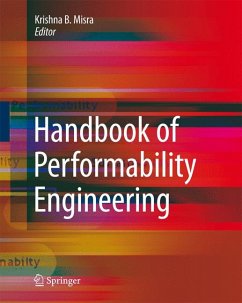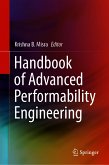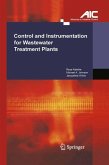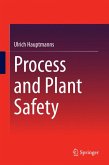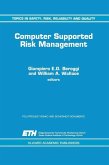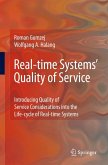As of now, dependability and cost effectiveness are primarily seen as instruments for conducting the international trade in the free market environment and thereby deciding the economic prosperity of a nation. However, the internalization of the hidden costs of environment preservation will have to be accounted for, sooner or later, in order to be able to produce sustainable products and systems in the long run. These factors cannot be ignored any more and must not be considered in isolation of each other.
The Handbook of Performability Engineering considers all aspects of performability engineering, providing a holistic view of the entire life cycle of activities of the product, along with the associated cost of environmental preservation at each stage, while maximizing the performance.
Dieser Download kann aus rechtlichen Gründen nur mit Rechnungsadresse in A, B, BG, CY, CZ, D, DK, EW, E, FIN, F, GR, HR, H, IRL, I, LT, L, LR, M, NL, PL, P, R, S, SLO, SK ausgeliefert werden.
The 100 international contributors to this book's 76 chapters provide depth and considerable diversity to the subject... Each chapter can be read independently and includes careful definitions and reviews of major topics and good descriptions of main methods... The editor's philosophy is to provide all engineers "with a wider vision of the requirement of sustainable and dependable products, systems, and services in the 21st century." This book provides a guide and reference for many of the engineering tools needed to accomplish this... Recommended.
Choice (August 2009) (Reviewer: S. A. Batterman, University of Michigan)
"The reader has a veritable garden from which to feast from this impressive collection of chapters."
Dr William Vesely,
Manager, Risk Assessment, Office of Safety and Mission Assurance, NASA
"Clearly covers the entire canvas of performability: quality, reliability, maintainability, safety and sustainability."
Way Kuo,
Editor-in-Chief, IEEE Transactions on Reliability
President, City University of Hong Kong
Formally Dean of Engineering and University Distinguished Professor, University of Tennessee
"The book should be of interest for reliability researchers or instructors that need some additional material--such as examples or new trends--for intensive courses given in reliability engineering. ... the technical content is impressive and the vast diversity of areas covered can be perceived as its greatest advantage; it enables, for instance, networking reliability experts to get acquainted with the mechanics of software reliability, which can be quite inspiring." (Piotr Cholda, ACM Computing Reviews, March, 2009)

